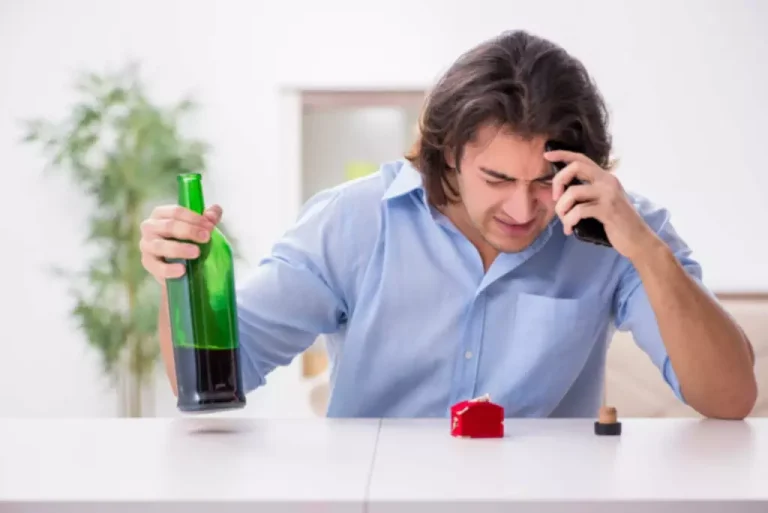
Even moderate amounts could pose problems, especially for people prone to stomach ulcers. Always seek medical guidance regarding how much, if any, alcohol is safe. Like Arixtra, Lovenox is a low molecular weight heparin given as an injection. The drug helps prevent clot formation, commonly following surgeries or in people with certain heart conditions. Combining Lovenox with alcohol can lead to easier bruising and prolonged bleeding, so doctors often recommend abstaining or limiting intake significantly. Alcohol can elevate the chance of gastrointestinal bleeding, and chronic use may strain the liver, potentially altering drug metabolism.
- People should speak with a healthcare professional about consuming alcohol and taking blood-thinning medications safely.
- The details are kept up to date to help people with addiction treatment needs get the most full and precise facts about the rehabilitation facility.
- Long-term heavy drinking is linked to an elevated risk of several cancers, including liver, breast, esophagus, and mouth cancers.
What Are the Risks of Excessive Alcohol Consumption with Eliquis?
These drugs play a crucial role in managing conditions related to blood clotting and circulation. Blood clots can be harmful, leading to conditions such as deep vein thrombosis (DVT), pulmonary embolism, stroke, or heart attack. Blood thinners are drugs your doctor prescribes to prevent blood clots that can cause a heart attack or stroke. If your doctor has prescribed one of these medicines, it’s because you have heart disease or another condition that increases your risk for clots.
- Alcohol treatment uses various methods to help with withdrawal and addiction.
- This ultimately affects the delicate balance that doctors hope to achieve while using blood thinners.
- Nicki hopes to contribute to the body of knowledge in treating substance use disorders.
- Make a gift that can go twice as far to advance healthcare research.
Does alcohol increase heart rate?

Blood thinners can be particularly dangerous for people with alcohol addiction. They often find it more difficult to restrict their alcohol use to a moderate amount or avoid combining alcohol with blood thinners. This increases the likelihood of complications from mixing alcohol and blood thinners. Someone who wants to drink alcohol while taking blood thinners should consult with their doctor before doing so. While some people may be able to drink in moderation while taking blood thinners, it is typically best to avoid it. Alcohol is generally not an essential activity, and it can increase the risk of bleeding, so it is typically best to avoid drinking while on blood thinners.

Switching from Eliquis to Xarelto
- It’s advisable to spread alcohol consumption over at least three days.
- Alcohol misuse can complicate the use of blood thinners significantly.
- It’s important to ativan watch for symptoms healing, as the combination can increase the risk of excessive sedation, dizziness, and impaired coordination.
- Drinking alcohol while on blood thinners can strain the liver, potentially affecting its ability to metabolize medications effectively.
If approved, your prescription can be filled at one of our partner pharmacies. If you take an anticoagulant like warfarin, you’ll need regular blood tests so your doctor can adjust your levels if needed. Ask them about other steps you should take to stay safe while you’re on this medication. Find out more about my one-of-a-kind online program designed to improve atrial fibrillation using only natural, evidence-based techniques. Learn how you can join hundreds of people that have decided to reverse AFib naturally with the Take Control Over AFib Program.
Treatment & Rehab
While moderate alcohol consumption can potentially increase the effectiveness of Eliquis, it can also heighten the risk of bleeding. Therefore, it is generally recommended to limit alcohol intake while on this medication. Additionally, informing your healthcare provider about all the medications and supplements you’re taking is vital for safe and effective treatment. Remember, when it comes to your health, it’s better to be safe than sorry. While crucial for preventing blood clots, blood thinners can have several side effects. The most common and significant side effect is increased bleeding.
Opioid Detox Symptoms
This includes prescription medicines, medicines bought over the counter without a prescription (such as aspirin), and any herbal remedies (such as St John’s Wort). Taking anticoagulant medicines can make you more prone to bleeding if you’re injured. The newer anticoagulant medicines apixaban, dabigatran, edoxaban and rivaroxaban also are not recommended alcohol rehab in pregnancy.

Seeking Professional Help

Yes, you can as long as you don’t https://ecosoberhouse.com/ exceed 14 alcohol units a week. However, if you drink a lot in a short period (i.e. bring drinking), you can exacerbate the effects of Elquis and increase the risk of bleeding. If you drink more alcohol units than recommended and take blood thinners, you are at risk of haemorrhaging.
Which drinks to avoid on blood thinners?
This can cause abdominal pain, nausea, and, in severe cases, life-threatening complications. Foods with a lot of vitamin K, such as leafy green vegetables, chickpeas and liver, can interfere with how warfarin works. But you should avoid making frequent changes to the amount of green vegetables you eat if you’re taking warfarin.

This can manifest as nosebleeds, bleeding gums, heavy menstrual bleeding, blood thinners and alcohol prolonged bleeding from cuts, or unexpected bruising. In severe cases, it can lead to internal bleeding, which might not be immediately noticeable. Other potential side effects include dizziness, hair loss, rashes, and, in some cases, liver function abnormalities.
